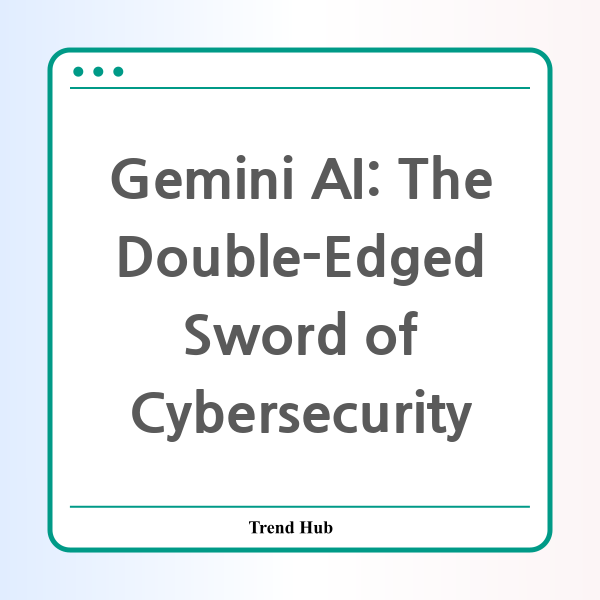* This website participates in the Amazon Affiliate Program and earns from qualifying purchases.

In the ever-evolving landscape of cybersecurity, the emergence of artificial intelligence tools like Google’s Gemini is both a blessing and a curse. How can a technology that fundamentally enhances productivity also serve as a resource for cybercriminals? This paradox arises from the dual-use nature of generative AI, where its applications can be equally beneficial and harmful.
Recently, Google disclosed alarming insights into how state-sponsored hacking groups are attempting to employ Gemini AI for cyber attacks. According to their findings, several hacker collectives from nations such as Iran, North Korea, China, and Russia have been experimenting with the AI to refine their malicious tactics. Despite their attempts, Google has concluded that while these groups have leveraged Gemini for research and content generation, they have not managed to develop groundbreaking attack techniques. Instead, they’ve gained modest productivity improvements in their operations.
Let’s delve deeper into how Gemini is being misused by these threat actors and what that means for the field of cybersecurity.
The Rise of State-Sponsored Misuse
The investigation revealed that Iranian advanced persistent threat (APT) groups were the most prolific users of Gemini, utilizing it to conduct reconnaissance on defense organizations, research vulnerabilities, and craft targeted phishing campaigns. Meanwhile, Chinese and North Korean actors have also discovered ways to streamline various phases of the cyberattack lifecycle with Gemini, focusing on tasks such as:
- Reconnaissance: Gathering intelligence about potential targets.
- Content Generation: Creating phishing emails and propaganda materials.
- Payload Development: Developing malicious code for exploitation.
Moreover, North Korean hackers have shown a bizarre inclination to draft cover letters to secure remote IT positions, potentially as a means to infiltrate Western companies and gain insider access.
The Impact of Gemini on Cybersecurity
While it is crucial to recognize the potential applications of generative AI in enhancing cybersecurity defenses, it is equally important to understand the risks posed by its misuse. Here’s a breakdown of the threats:
- Scalability of Attacks: Generative AI can automate tasks such as vulnerability research and phishing email creation, allowing hackers to operate on a larger scale and at a much higher speed.
- Lowered Barriers for Cybercriminals: Less experienced hackers can utilize AI tools like Gemini, acquiring sophisticated skills that were once limited to more veteran cybercriminals.
- Ethical Concerns: The proliferation of jailbroken or maliciously trained AI models online poses significant risks, with the possibility of widespread abuse of such technologies.
Despite strong safety protocols embedded within Gemini, attempts by state-sponsored actors to bypass these filters have been noted. These actors have actively sought prompts to generate malicious code or develop phishing strategies, but such efforts have largely been thwarted by Gemini’s robust security measures.
The Path Forward
As cybersecurity professionals and developers work to sharpen their tools against evolving threats, the lessons learned from Gemini’s usage reveal the critical need for ongoing vigilance. Organizations must prioritize proactive strategies that include:
- Continuous Monitoring: Keeping an eye on emerging threats and adapting to the changing tactics of cybercriminals.
- Robust Security Measures: Implementing multi-layered security protocols to safeguard against potential AI-enhanced attacks.
- Education and Awareness: Training staff to recognize and respond to sophisticated phishing and social engineering attempts.
In conclusion, while Gemini AI poses certain risks, it also holds tremendous potential for enhancing cybersecurity frameworks. As we navigate this new frontier, the balance between leveraging AI for protection and safeguarding against its misuse will define the future of cybersecurity.
* This website participates in the Amazon Affiliate Program and earns from qualifying purchases.